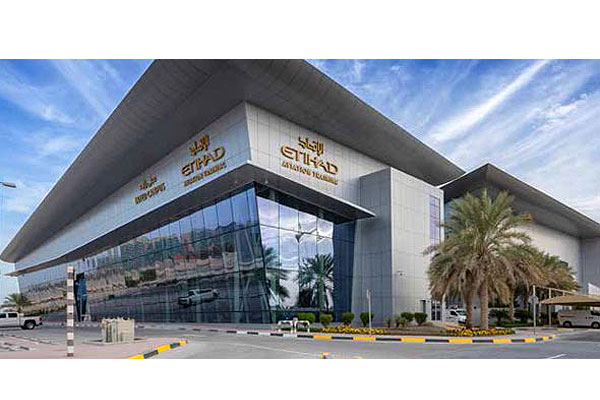A three-year study to develop innovative and more engaging training procedures, drawing upon neuro-cognition, for the next generation of airline pilots.
As commercial airliners become more technologically advanced, so too must the skills of the pilots who will fly them. But while aircraft continue to evolve, training methods have not only lagged – they have become increasingly irrelevant to today’s trainee pilots, who have grown up in the digital age.
At the 2019 Dubai International Air Show, Etihad Aviation Training and Abu Dhabi’s Khalifa University of Science and Technology announced a three-year study to develop innovative and more engaging training procedures, drawing upon neuro-cognition, for the next generation of airline pilots.
Captain Fabrizio Interlandi, NEXTGEN Project Manager for Etihad Aviation Training, said: “The pilots of tomorrow are millennials, and increasingly post-millennials. They have grown up with apps, tablet devices, electronic games and virtual reality. Research already shows that they process information differently to previous generations and they have a different attitude to learning. The purpose of this study is to identify new ways to train young pilots, using technology with which they can easily engage, rather than textbooks and traditional classroom learning.”
The study will be conducted by Khalifa University’s College of Engineering (Aerospace Engineering, Industrial and Systems Engineering) and Emirates College for Advanced Education (ECAE) and its Cognitive-Neuro Imaging Unit, both based in Abu Dhabi. Etihad Aviation Training will provide trainees and instructors to participate in the study, access to data, and use of sophisticated full-motion flight training simulators.
The co-principal investigators, Dr. Nelson King, Associate Professor, Industrial and Systems Engineering, Khalifa University, and Dr. Claudine Habak, (ECAE), said current training programs for airline pilots often do not take into consideration the experience gaps between highly experienced pilots and cadets with minimal flying hours.
Dr King said: “Everyone is equal in a conventional training program. Our study will take into account the generational and brain development differences between younger and older pilots and compare the ways in which they learn. We want to identify the most effective ways not only to educate new pilots, but also to ensure that they retain vital information.”
Dr Habak said: “Our objective is to create an innovative training experience which matches the abilities and confidence of upcoming generations. That may include apps. It may include virtual reality. And it may include gamification and micro-learning techniques. We are about to find out.”
Etihad Aviation Training currently provides two initial training programs for the Airbus A320 aircraft – the Multi-Crew Pilot Licence – Evidence-Based training, and the A320 Standard Transition Course for trainees from external companies.
To be effective, these courses need a significant and often different number of sessions per trainee. The research will start with observation of and interviews with trainees to evaluate effectiveness of programs and identify gaps.
It will then move to game-based learning, development of device simulators and finally the introduction of appropriate software to deliver a ‘learning system’ for evaluation. The collaboration between Etihad Aviation Training and Khalifa University also offers the opportunity of an industrial partnership, and development of internship programs for talented Emirati students.
Captain Paolo La Cava, Vice President, Etihad Aviation Training, said: “This research is exciting and ground-breaking, and further evidence of the strong innovation credentials of Abu Dhabi. Our eventual objective is to ensure that future pilots are trained in the most relevant, effective and efficient way, not only for Etihad but potentially for many other operators who come to us for training.”
Vicky is the co-founder of TravelDailyNews Media Network where she is the Editor-in Chief. She is also responsible for the daily operation and the financial policy. She holds a Bachelor's degree in Tourism Business Administration from the Technical University of Athens and a Master in Business Administration (MBA) from the University of Wales.
She has many years of both academic and industrial experience within the travel industry. She has written/edited numerous articles in various tourism magazines.








































































































































































